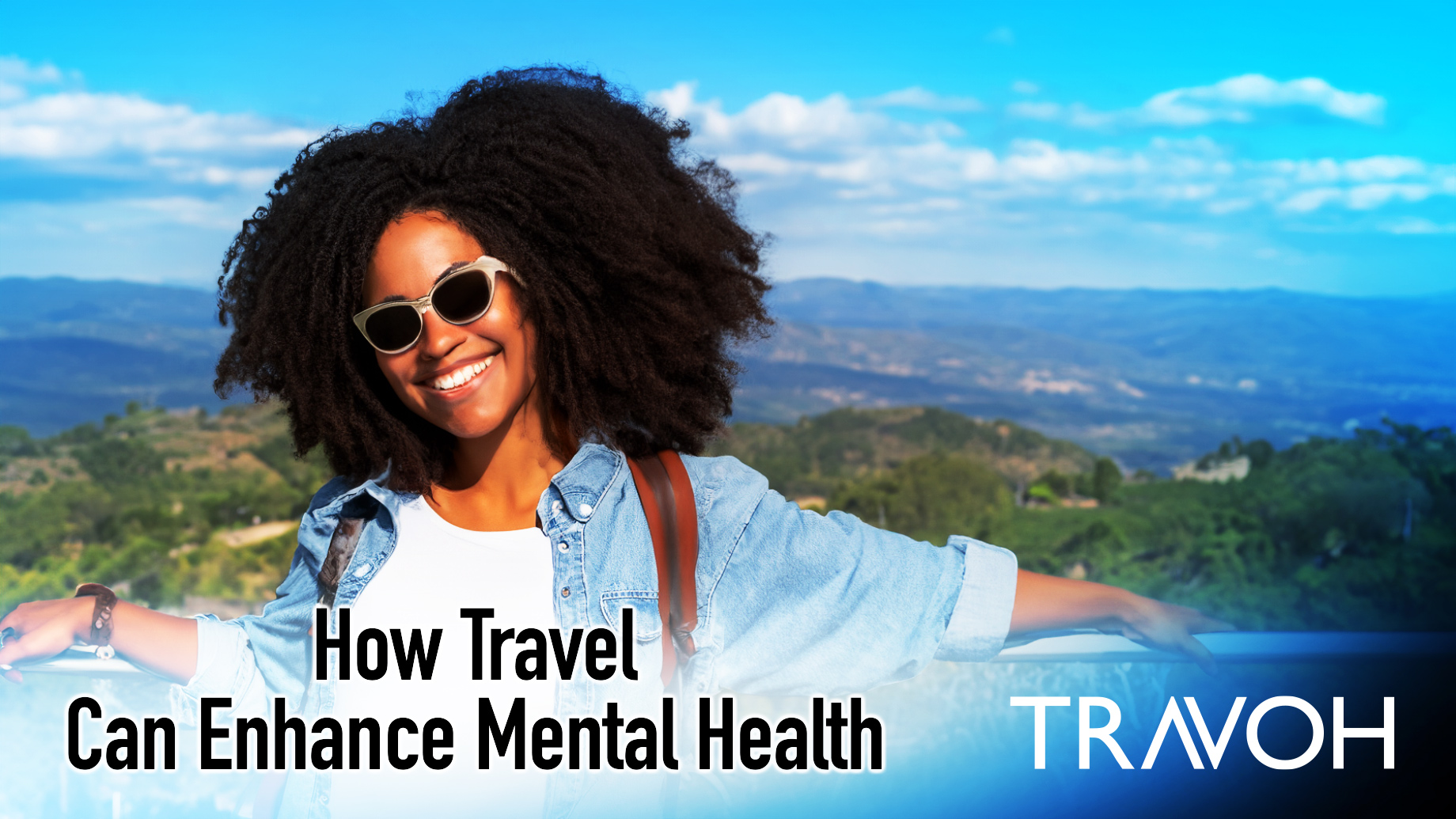
In the hustle and bustle of our daily lives, stress, anxiety, and mental fatigue can become all too common. Many of us seek ways to refresh and rejuvenate our minds, searching for solace in hobbies, therapy, and exercise. But what about travel? The act of leaving behind our everyday surroundings and embarking on a journey to explore new places can be a powerful tool for mental well-being. This article explores the profound connection between travel and mental health, unveiling how taking a trip can be a journey to wellness.
The Psychology of Travel
Traveling exposes us to different cultures, landscapes, and experiences. This novel stimulation encourages us to step outside our comfort zones, fosters creativity, and promotes cognitive flexibility. Moreover, the change of scenery can offer a fresh perspective, enabling us to see our problems from a new angle.
Connection to Nature
A growing body of research emphasizes the therapeutic effects of nature on mental health. Engaging with natural environments can lower stress levels, reduce symptoms of anxiety and depression, and enhance overall well-being. Whether hiking in the mountains, strolling along the beach, or simply breathing in the fresh air of a new location, travel allows us to reconnect with nature and experience these beneficial effects.
Social Connections
Traveling often involves meeting new people, forging friendships, and strengthening bonds with loved ones. These social connections are vital to our mental health, contributing to a sense of belonging and combating feelings of loneliness and isolation.
The Healing Power of Adventure
Adventure travel, involving activities like hiking, kayaking, or mountain climbing, can be particularly beneficial for mental health. These activities demand our full attention, allowing us to immerse ourselves in the present moment, a practice often associated with mindfulness. Adventure travel isn’t just about adrenaline-pumping activities; it’s a pathway to personal growth, self-discovery, and mental healing. Here’s a deeper look at how adventurous journeys can contribute to mental wellness.
Facing Challenges
Embracing challenges and overcoming them boosts self-confidence and resilience. The sense of achievement derived from tackling something new and difficult promotes personal growth and can be deeply therapeutic.
Building Self-Esteem and Confidence
Participating in challenging activities like rock climbing, surfing, or trekking helps individuals realize their capabilities. Completing a challenging task or overcoming fears contributes to building self-esteem and confidence. These feelings often translate into daily life, enhancing one’s ability to face challenges with greater courage and determination.
Enhancing Mind-Body Connection
Adventure activities often require physical exertion and focus, fostering a strong mind-body connection. This connection can lead to better mental clarity, awareness, and stress reduction. The physical accomplishments experienced through adventure can lead to a profound sense of connection with oneself, promoting overall well-being.
Emphasizing Teamwork and Cooperation
Many adventure activities are done in groups or require teamwork, emphasizing collaboration and communication. These skills are vital for personal and professional relationships and can be enhanced through adventurous experiences. Learning to work with others in challenging circumstances fosters empathy, understanding, and a shared sense of accomplishment.
Encouraging Resilience and Adaptability
Adventurous travel often involves unexpected situations and challenges that require problem-solving and adaptability. Learning to adapt and overcome obstacles encourages resilience, a vital quality for facing life’s inevitable ups and downs. This ability to cope and thrive in the face of adversity can have long-lasting positive effects on mental health.
Providing a Sense of Purpose and Achievement
Adventure travel often involves goal-setting, whether it’s reaching a mountain summit, completing a trail, or learning a new skill like scuba diving. Achieving these goals provides a sense of purpose and fulfillment, contributing to a more positive outlook on life. This accomplishment fosters a sense of meaning and direction that can be deeply rewarding.
Creating Lifelong Memories and Connections
The shared experiences of adventure travel create bonds with fellow travelers that can last a lifetime. These connections and the memories made along the way contribute to a sense of community and belonging. Moreover, reflecting on these unique experiences can be a source of joy and inspiration long after the adventure has ended.
Therapeutic Wilderness Programs
Some organizations offer therapeutic wilderness programs that blend adventure travel with mental health support. These programs are guided by mental health professionals and utilize adventure activities to foster growth, healing, and self-reflection. They are often tailored to address specific mental health concerns, such as anxiety, depression, or trauma, in a supportive and structured environment.
The Healing Power
The healing power of adventure is a multifaceted concept that goes beyond mere recreation. It involves personal development, self-discovery, and mental rejuvenation. By embracing challenges, working in teams, connecting with nature, and achieving goals, adventure travel offers a unique and effective pathway to mental wellness. Whether it’s a weekend hike or a month-long expedition, the adventures we embark upon can be transformative experiences that enrich our lives and strengthen our mental health.
Travel as Therapy
Some therapists are now incorporating travel into their treatment plans, recognizing its potential as a therapeutic tool. Therapy retreats, wellness vacations, and guided tours focusing on mental well-being are becoming more common, offering tailored experiences that combine travel with professional mental health support.
Mindful Travel
Mindful travel encourages us to be fully engaged in our experiences, rather than rushing through them or being preoccupied with other concerns. By practicing mindfulness on our travels, we can enhance the mental health benefits, turning the trip into a more profound and healing experience.
Considerations and Precautions
Though travel can be an enriching experience, it’s essential to acknowledge that it is not a panacea for mental health concerns. Travel can be stressful and may exacerbate mental health conditions for some individuals. Always consult with mental health professionals if you have underlying mental health issues, and consider their advice when planning a trip.
Accessible Travel
Not everyone can afford to travel, and the idea that travel is necessary for mental health could exclude those with financial constraints. However, even small journeys such as day trips or exploring local nature spots can be incredibly beneficial.
Conclusion
The connection between travel and mental health is multifaceted and deeply personal. From providing an escape from daily stressors to encouraging personal growth and mindfulness, the journey to wellness through travel is a path worth exploring.
Whether it’s an exotic vacation or a simple walk in a nearby park, the essential aspect is the willingness to step outside our daily routine and engage with the world in a mindful and appreciative way. By understanding the mental health benefits of travel and applying them consciously, we can make our travels a journey not just to new places but to a healthier state of mind.
For more insightful articles on travel and tourism, make sure to read more TRAVOH articles

